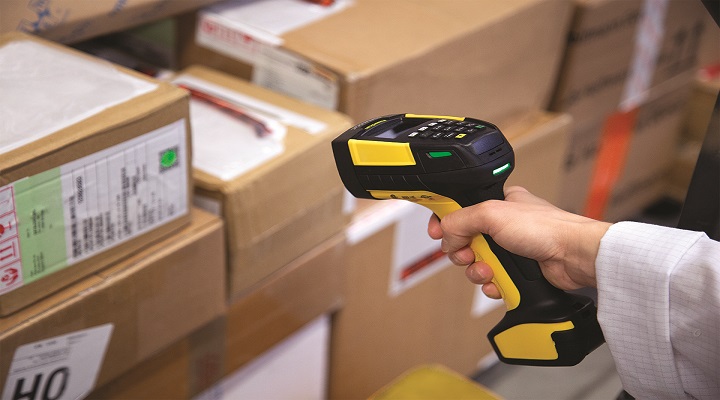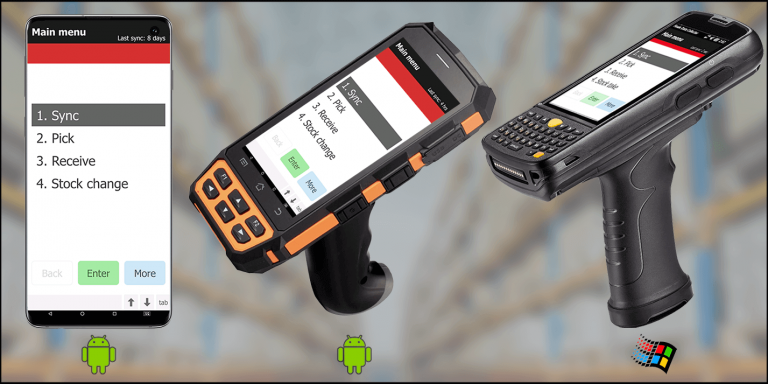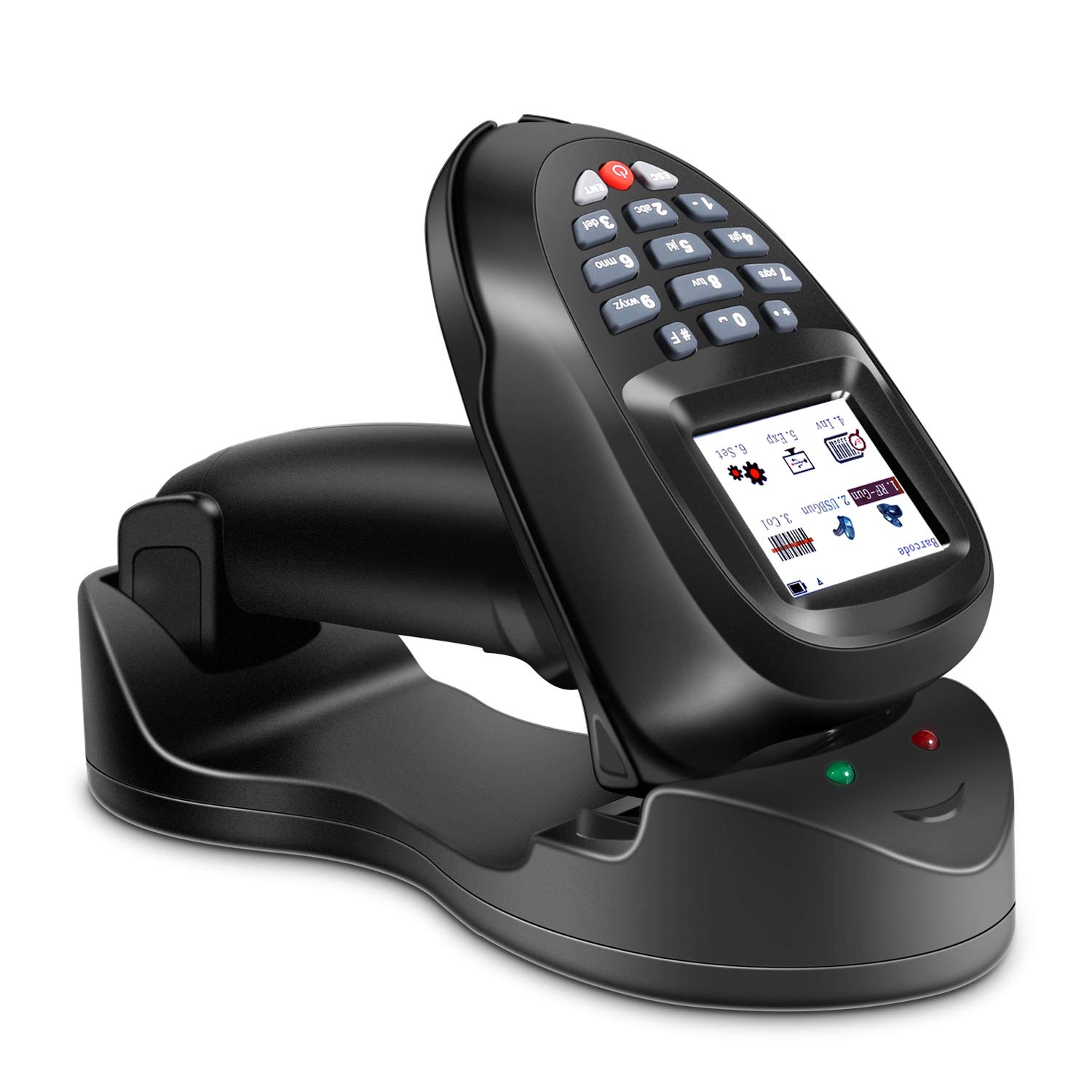Business inventory price scanners have emerged as indispensable tools for businesses seeking to streamline inventory management, enhance accuracy, and elevate customer satisfaction. This article delves into the world of business inventory price scanners, exploring their types, benefits, and key considerations to guide businesses in making informed decisions.
From handheld devices to fixed and mobile scanners, business inventory price scanners offer a range of options tailored to specific business needs. Their ability to capture accurate pricing data, improve efficiency, and reduce errors makes them a valuable asset for businesses of all sizes.
Business Inventory Price Scanner Market Overview

The global business inventory price scanner market is expected to grow significantly in the coming years, driven by the increasing adoption of inventory management systems and the need for accurate and efficient inventory tracking. The market is also expected to benefit from the growing popularity of e-commerce, which has led to an increase in the number of businesses that need to manage large inventories.
Key Industry Trends and Drivers
- The increasing adoption of inventory management systems is a major driver of the growth of the business inventory price scanner market. Inventory management systems help businesses to track their inventory levels, manage their supply chain, and optimize their inventory costs.
Business inventory price scanners are an essential part of inventory management systems, as they allow businesses to quickly and accurately scan the prices of their inventory items.
- The growing popularity of e-commerce is another major driver of the growth of the business inventory price scanner market. E-commerce businesses need to be able to quickly and accurately track their inventory levels in order to fulfill orders and manage their supply chain.
Business inventory price scanners can help e-commerce businesses to do this by providing them with a fast and accurate way to scan the prices of their inventory items.
Competitive Landscape and Major Players
The business inventory price scanner market is a competitive market, with a number of major players. Some of the leading players in the market include:
- Zebra Technologies
- Honeywell
- Datalogic
- Cognex
- Sick
These companies offer a range of business inventory price scanners, from basic models to high-end models with advanced features. The market is also expected to see the entry of new players in the coming years, as the market continues to grow.
Types of Business Inventory Price Scanners
Business inventory price scanners are devices used to capture and track the prices of items in a retail or warehouse setting. They come in various types, each with its unique features and applications.
Handheld Scanners
- Portable and lightweight, making them easy to carry around.
- Typically used for quick and efficient scanning of individual items.
- May feature additional functions such as barcode generation and data storage.
Fixed Scanners
- Mounted in a fixed location, such as at a checkout counter or warehouse entrance.
- Ideal for high-volume scanning of items passing through a specific point.
- Can be integrated with other systems, such as point-of-sale (POS) software.
Mobile Scanners
- Combine the features of handheld and fixed scanners.
- Mounted on a mobile cart or worn by employees, allowing for scanning in various locations.
- Provide increased flexibility and efficiency in inventory management.
When choosing a business inventory price scanner, consider factors such as the volume of items to be scanned, the required scanning speed, the portability and durability required, and the integration capabilities with existing systems.
Benefits of Using Business Inventory Price Scanners

Implementing business inventory price scanners offers numerous advantages that can significantly enhance operational efficiency, accuracy, and customer satisfaction.
One of the primary benefits is improved accuracy. Manual price checking is prone to human error, which can lead to incorrect pricing and lost revenue. Business inventory price scanners eliminate this risk by providing accurate and consistent readings, ensuring that customers are charged the correct price for each item.
Increased Efficiency
Business inventory price scanners also streamline the checkout process, reducing wait times and increasing customer satisfaction. By eliminating the need for manual price checks, cashiers can focus on providing excellent customer service and completing transactions more quickly.
Enhanced Customer Satisfaction, Business inventory price scanner
Accurate pricing and efficient checkout processes contribute to overall customer satisfaction. When customers know they are being charged the correct price and their transactions are completed quickly, they are more likely to have a positive shopping experience and return to the store in the future.
Return on Investment (ROI)
The ROI associated with using business inventory price scanners can be substantial. The improved accuracy and efficiency lead to reduced labor costs, increased sales, and enhanced customer satisfaction. These benefits often outweigh the initial investment in the scanners, resulting in a positive ROI over time.
For example, a retail store that implemented business inventory price scanners reported a 20% reduction in pricing errors, leading to an increase in sales and a 15% decrease in labor costs. This resulted in a significant ROI and a payback period of less than one year.
Features to Consider When Choosing a Business Inventory Price Scanner
Choosing the right business inventory price scanner is crucial to streamline your inventory management processes. Consider these key features to ensure you select a scanner that meets your specific needs:
- Scanning Speed:The scanning speed determines how quickly the scanner can capture data. Consider the volume of items you need to scan and choose a scanner with a speed that meets your requirements.
- Accuracy:Accuracy is essential to avoid errors in inventory tracking. Look for scanners with high accuracy rates to minimize data entry mistakes.
- Durability:The durability of the scanner is crucial for its longevity. Choose scanners designed to withstand the demands of your work environment, such as those with rugged construction and shock resistance.
- Connectivity:Consider the connectivity options available, such as Bluetooth, Wi-Fi, or USB. Choose a scanner that supports the connectivity method compatible with your inventory management system.
- Software Compatibility:Ensure the scanner is compatible with your inventory management software to seamlessly integrate data into your system.
- Ergonomics:Choose a scanner that is comfortable to hold and use for extended periods. This reduces fatigue and improves efficiency.
- Battery Life:If you need portable scanning capabilities, consider the battery life of the scanner. Choose a scanner with a long battery life to minimize interruptions during scanning.
Additional Considerations
In addition to the core features, consider these factors when selecting a business inventory price scanner:
- Budget:Determine your budget and choose a scanner that offers the features you need within your price range.
- Brand Reputation:Consider the reputation of the scanner manufacturer. Look for brands known for producing reliable and high-quality scanners.
- Warranty:Choose a scanner with a warranty to protect your investment in case of any defects or malfunctions.
By carefully considering these features and factors, you can choose a business inventory price scanner that optimizes your inventory management processes, improves accuracy, and streamlines operations.
Implementation and Integration of Business Inventory Price Scanners

Implementing and integrating a business inventory price scanner into your existing systems involves several steps:
- Assessment and Planning:Determine your business needs, scanner requirements, and integration points within your existing systems.
- Hardware Selection:Choose a scanner that meets your scanning volume, accuracy, and durability requirements.
- Software Integration:Integrate the scanner’s software with your inventory management system to automate data transfer and updates.
- Training and Deployment:Train staff on scanner operation and data management protocols. Deploy the scanner and ensure proper usage.
- Monitoring and Maintenance:Regularly monitor scanner performance and conduct maintenance to ensure optimal operation.
Challenges and Best Practices
Challenges in implementing business inventory price scanners include:
- Integration with legacy systems
- Data accuracy and reliability
- Staff training and adoption
Best practices include:
- Thorough planning and assessment
- Selecting a reputable vendor with proven integration experience
- Providing comprehensive training and support
- Regular performance monitoring and maintenance
Case Study: Successful Implementation
Company XYZ, a large retail chain, successfully implemented a business inventory price scanner system. They experienced significant benefits, including:
- Reduced inventory shrinkage by 15%
- Improved customer satisfaction through accurate pricing
- Increased efficiency and productivity in inventory management
Trends and Future Developments in Business Inventory Price Scanners

The business inventory price scanner market is constantly evolving, with new technologies and trends emerging all the time. In this section, we’ll take a look at some of the key trends and future developments that are shaping the market.
One of the most significant trends in the business inventory price scanner market is the increasing adoption of artificial intelligence (AI). AI-powered scanners can automate many of the tasks that are traditionally performed by human workers, such as identifying and pricing items.
This can lead to significant savings in time and labor costs.
Another key trend is the growing popularity of the Internet of Things (IoT). IoT devices can be used to connect business inventory price scanners to other systems, such as inventory management systems and point-of-sale (POS) systems. This can help to improve the accuracy and efficiency of inventory management.
Impact of New Technologies
The impact of new technologies, such as AI and IoT, on the future of business inventory price scanners is significant. AI-powered scanners can automate many of the tasks that are traditionally performed by human workers, such as identifying and pricing items.
This can lead to significant savings in time and labor costs.
IoT devices can be used to connect business inventory price scanners to other systems, such as inventory management systems and point-of-sale (POS) systems. This can help to improve the accuracy and efficiency of inventory management.
Future of Business Inventory Price Scanners
The future of business inventory price scanners is bright. As new technologies continue to emerge, we can expect to see even more innovative and efficient scanners on the market. These scanners will help businesses to improve their inventory management processes and save money.
Concluding Remarks
As businesses navigate the ever-changing landscape of inventory management, business inventory price scanners will continue to play a pivotal role. With advancements in technology and the integration of AI and IoT, these scanners are poised to further enhance inventory accuracy, optimize operations, and drive business growth.
Popular Questions
What are the different types of business inventory price scanners?
Business inventory price scanners come in various types, including handheld, fixed, and mobile scanners. Handheld scanners are portable and offer flexibility, while fixed scanners are permanently mounted for high-volume scanning. Mobile scanners combine the features of handheld and fixed scanners, providing versatility.
How do business inventory price scanners improve accuracy?
Business inventory price scanners utilize barcode technology to capture data accurately, reducing human error and ensuring the correct pricing of inventory items. This enhanced accuracy helps businesses maintain accurate inventory records and avoid discrepancies.
What are the key considerations when choosing a business inventory price scanner?
When selecting a business inventory price scanner, consider factors such as scanning speed, accuracy, durability, and compatibility with existing systems. The specific needs of your business, such as the volume of items scanned and the environment in which the scanner will be used, should also be taken into account.